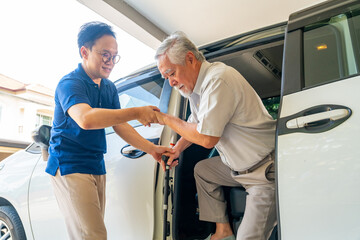Visa Sponsorship for Caregivers in Japan: Opportunities, Benefits, and Application Guide
Introduction
Japan’s rapidly aging population has created an urgent and sustained demand for skilled caregivers. Visa Sponsorship for Caregivers in Japan, With more than 28% of its citizens aged 65 and above, Japan is one of the world’s most elderly nations. To address workforce shortages in the healthcare and welfare sectors, the Japanese government has opened multiple employment and visa sponsorship channels specifically targeting foreign caregivers. Visa Sponsorship Jobs in Tasmania Hospitality and Tourism
The concept of visa sponsorship for caregivers in Japan allows qualified foreigners to legally work, reside, and contribute to Japan’s care sector under government-approved programs. These include the Kaigo Visa (Care Worker Visa), the Specified Skilled Worker (SSW) Visa, and the Economic Partnership Agreement (EPA) programs. These pathways enable international applicants to enter Japan, gain employment with authorized institutions, and even transition toward long-term residency.
For aspiring caregivers around the world, Japan represents a stable, respectful, and well-structured career destination. The combination of cultural appreciation for elder care, job security, and government support makes it one of Asia’s most attractive caregiving employment markets.
Why Work in Japan as a Caregiver?
Working in Japan as a caregiver goes beyond earning a salary — it offers a fulfilling experience grounded in compassion, respect, and lifelong skill development. The caregiving profession in Japan is regarded with dignity, and foreign workers are increasingly recognized as essential contributors to the nation’s social infrastructure. Caregiver Jobs in Sweden with Visa Sponsorship
Japan’s caregiving facilities are highly organized, well-equipped, and guided by modern healthcare standards. Employees benefit from structured work schedules, training, and health insurance coverage. Moreover, the Japanese government actively promotes diversity in the caregiving workforce, supporting the inclusion of professionals from Asia, Africa, and other regions.
Another significant reason to work in Japan is the career growth potential. Foreign caregivers often begin as support staff but can progress into certified care workers (Kaigo Fukushi-shi), management positions, or even long-term residents after a few years of dedicated service. Beyond professional advancement, Japan offers a clean, safe environment, efficient transportation, and one of the world’s most advanced healthcare systems — all contributing to a higher quality of life.
Entry-Level Caregiver Jobs in Japan with Visa Sponsorship
Entry-level caregiver roles in Japan are designed to help newcomers integrate smoothly into the care profession, even if they lack extensive prior experience. Many employers provide structured on-the-job training to help foreign workers adapt to Japan’s caregiving standards and ethical practices. Cybersecurity Jobs in New Zealand with Visa Sponsorship
Positions typically involve assisting elderly individuals with daily tasks such as bathing, dressing, meal preparation, and mobility support. Caregivers also provide emotional companionship — a core element of Japanese elder care philosophy emphasizing empathy and respect.
Foreign workers can enter Japan through Specified Skilled Worker (SSW) Category 1, which allows them to work as caregivers under a renewable contract for up to five years. During this period, they receive training in Japanese language and caregiving methods. Many transition later to SSW Category 2, which offers long-term residency and family sponsorship privileges.
Even with limited Japanese proficiency, entry-level caregivers are welcomed under sponsorship programs. Employers often assist with Japanese language classes, accommodation, and orientation sessions, ensuring that workers can focus on both professional duties and cultural adjustment.
Types of Caregiver Jobs and Sectors Offering Visa Sponsorship in Japan
Caregiver employment in Japan spans multiple sectors, each offering unique experiences and opportunities for visa sponsorship. Below are the most common caregiving settings that actively hire foreign workers:
-
Elderly Care Homes (Kaigo Shisetsu):
These facilities cater to senior citizens requiring daily assistance and supervision. Foreign caregivers perform personal care tasks, monitor residents’ health, and promote emotional well-being. -
Hospitals and Medical Centers:
Many hospitals collaborate with foreign caregivers to support elderly or disabled patients. Responsibilities may include mobility assistance, post-surgery care, and patient observation under nurse supervision. Construction Worker Jobs in France with Visa Sponsorship -
Rehabilitation Centers:
These centers focus on recovery and physical therapy for patients regaining strength after illness or injury. Caregivers assist with exercises, comfort, and motivational support. -
Home Care Services:
Japan’s growing preference for in-home care means that many caregivers now work in private residences. These positions often offer flexibility and stronger personal relationships with clients. -
Special Needs and Welfare Facilities:
Institutions serving people with disabilities or chronic illnesses also recruit caregivers with visa sponsorship. These roles often require patience, compassion, and specialized training.
Collectively, these sectors provide a wide range of entry points for foreign caregivers who wish to build stable, long-term careers in Japan under sponsored visas.
Top Hospitals and Care Institutions in Japan Sponsoring Caregiver Jobs for Foreigners
Japan has numerous recognized institutions and recruitment networks actively offering caregiver visa sponsorship. Some of the leading employers and organizations include:
-
Social Welfare Corporations in Tokyo, Osaka, and Kanagawa, which manage multiple nursing homes. Chef Jobs in the USA with Visa Sponsorship
-
Medical Corporations like Seireikai, Tsukui Corporation, and Nichii Gakkan, which hire foreign staff under both EPA and SSW programs.
-
Public and Private Hospitals partnering with government agencies to train and sponsor foreign caregivers, particularly under the Economic Partnership Agreements with Indonesia, the Philippines, and Vietnam.
-
Recruitment Agencies authorized by Japan’s Ministry of Health, Labour and Welfare, connecting overseas applicants with verified caregiving institutions.
These organizations often provide full visa sponsorship, relocation support, and training programs, ensuring smooth adaptation for international employees.
Benefits of Working as a Caregiver in Japan with Visa Sponsorship
Working as a caregiver in Japan brings several tangible and intangible benefits.
1. Job Security and Stable Income:
Caregiving is a high-demand sector with continuous growth. Visa sponsorship ensures legal employment status, healthcare benefits, and consistent pay.
2. Skill Development:
Japan’s caregiving industry emphasizes training. Workers receive instruction in elderly care techniques, Japanese etiquette, and medical assistance procedures.
3. Pathway to Residency:
Under long-term sponsorship programs, caregivers can apply for permanent residency after fulfilling work requirements. Funded Master’s Scholarships in Japan for International Students
4. Cultural Enrichment:
Living in Japan provides exposure to one of the world’s most unique cultures — known for respect, precision, and harmony.
5. Supportive Work Environment:
Many employers provide accommodation, meal allowances, and paid leave, making it easier for foreign workers to settle.
Overall, the caregiving profession in Japan is both financially rewarding and personally meaningful, offering a stable foundation for future career growth.
Challenges Foreign Caregivers May Face in Japan
While opportunities are abundant, foreign caregivers should be aware of certain challenges:
-
Language Barrier: Communicating effectively with patients and coworkers requires at least a basic understanding of Japanese. Passing the Japanese Language Proficiency Test (JLPT) or Nursing Care Japanese Evaluation Test is often mandatory.
-
Cultural Adaptation: Japanese workplaces prioritize punctuality, respect, and group harmony. Adjusting to these norms may take time. Canada Visa Sponsorship Jobs for foreigners
-
Physical and Emotional Demands: Caregiving involves long hours and emotionally intense situations.
-
Licensing Requirements: Some institutions require passing national caregiving exams to achieve higher positions or permanent contracts.
However, with patience, adaptability, and employer support, most foreign caregivers successfully overcome these hurdles and enjoy fulfilling careers.
Regions in Japan Offering the Best Opportunities and Salaries for Caregivers
While caregiving jobs are available nationwide, certain prefectures stand out for offering higher salaries and better living conditions:
-
Tokyo: The capital offers the highest caregiver wages (¥230,000–¥300,000 monthly) and abundant job openings.
-
Osaka: Known for its friendly community and lower living costs, Osaka provides steady caregiving employment. Welder Jobs in the Netherlands with Visa Sponsorship
-
Kanagawa: Proximity to Tokyo, strong hospital networks, and good housing support make it attractive for foreign workers.
-
Aichi (Nagoya): Industrial yet balanced, Aichi offers solid healthcare infrastructure and stable caregiving contracts.
-
Fukuoka: Located in southern Japan, Fukuoka combines affordable living with excellent training programs for foreign caregivers.
These regions remain the top destinations for foreigners seeking caregiver jobs in Japan with visa sponsorship.
Salary Scale for Foreign Caregivers in Japan
Caregiver salaries in Japan vary depending on experience, location, and employer type.
-
Entry-Level Caregivers:
Earn between ¥180,000 and ¥220,000 per month, often including accommodation or meal benefits. -
Mid-Level Caregivers (2–5 years of experience):
Typically earn ¥230,000–¥280,000 monthly, with opportunities for annual raises and bonuses. Caregiver Jobs in Japan with Visa Sponsorship -
Senior Caregivers or Certified Kaigo Fukushi-shi:
Can earn between ¥300,000 and ¥350,000 monthly, along with overtime allowances, insurance, and paid leave.
This salary structure ensures that foreign caregivers enjoy competitive compensation in line with Japanese labor standards.
Websites to Find Caregiver Jobs in Japan with Visa Sponsorship
Job seekers can explore verified platforms that specialize in foreign employment and caregiver recruitment:
-
Japan Work Visa Portal (official MOFA site)
-
Hello Work Japan (government employment service)
-
GaijinPot Jobs
-
Nursing Japan Recruitment
-
CareFinder Japan
-
JobStreet Japan
-
LinkedIn Japan – Caregiving Opportunities
These websites regularly post legitimate caregiver jobs offering full visa sponsorship and relocation support.
Application Requirements and Required Documents for Japan Caregiver Visa Sponsorship
To qualify for caregiver visa sponsorship in Japan, applicants typically need:
-
Valid passport and work-ready status.
-
Proof of caregiving qualification or training certificate (formal or informal).
-
Japanese language proficiency (JLPT N4 or N3 preferred). Farm Worker Jobs in Netherlands with Visa Sponsorship
-
Job offer from a registered caregiving institution.
-
Medical clearance and background check.
-
Completed visa application form and recent passport photographs.
Employers usually assist in preparing documentation and submitting visa sponsorship requests through the Japanese Immigration Bureau.
Step-by-Step Guide: How to Apply for Caregiver Jobs in Japan with Visa Sponsorship
-
Research and Identify Potential Employers:
Begin with trusted job boards or government programs focusing on foreign caregiver recruitment. -
Prepare Your Application Documents:
Include a professional CV, cover letter, caregiving certificates, and language test results. -
Submit Application and Attend Interviews:
Interviews may be conducted online. Be prepared to discuss caregiving skills and motivation for working in Japan. Top Hotels in Norway Offering Visa Sponsorship for foreigners -
Receive Job Offer and Visa Sponsorship:
Once accepted, the employer submits necessary paperwork for your Certificate of Eligibility (COE). -
Apply for the Work Visa at a Japanese Embassy:
Submit your COE and other documents to obtain the caregiver visa. -
Travel to Japan and Begin Orientation:
Upon arrival, attend induction sessions to learn Japanese workplace rules, caregiving methods, and safety protocols.
This structured process ensures smooth relocation and legal employment under Japan’s visa sponsorship system.
FAQs about Visa Sponsorship for Caregivers in Japan
Q1: Do I need to know Japanese before applying?
Basic Japanese proficiency (JLPT N4 or higher) is recommended, but many employers offer training programs.
Q2: Can I bring my family under a caregiver visa?
Yes, under advanced visa categories like SSW Type 2, family reunification is possible. Factory Jobs in Poland for Foreigners with Visa Sponsorship
Q3: How long is the caregiver visa valid?
Usually valid for 1–5 years and renewable upon continued employment.
Q4: Is previous caregiving experience required?
Not always. Many institutions accept motivated applicants willing to undergo training.
Q5: Can I apply for permanent residency?
Yes, long-term caregivers may qualify for residency after several years of continuous service.
Conclusion: Building a Rewarding Career in Japan as a Caregiver with Visa Sponsorship
Japan’s strong commitment to caring for its elderly population creates unmatched opportunities for compassionate and skilled foreign workers. Through structured visa sponsorship programs, international caregivers can find stable employment, career development, and a welcoming environment that values dedication and empathy. Bachelor’s Degree Scholarships in France for Non-EU Students
Building a caregiving career in Japan means not only earning a living but also making a difference in people’s lives — a mission deeply aligned with Japan’s cultural respect for care and community. For anyone seeking meaningful work abroad, visa sponsorship for caregivers in Japan stands as a gateway to professional success and personal growth in one of the world’s most respected societies.






